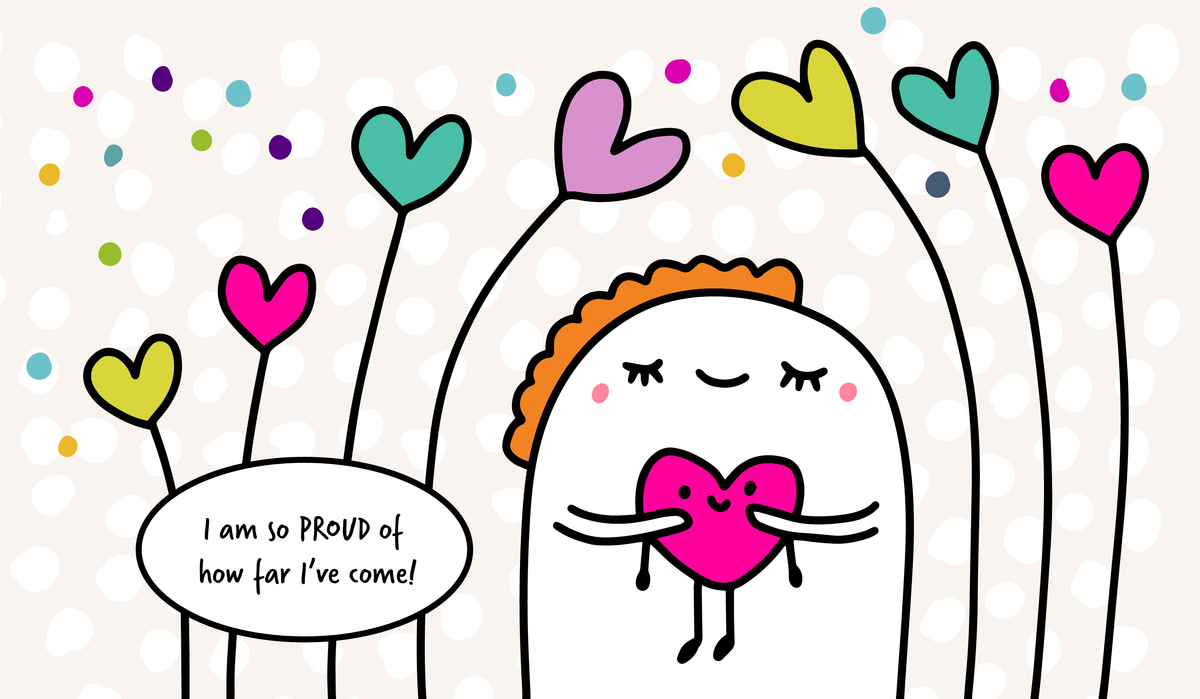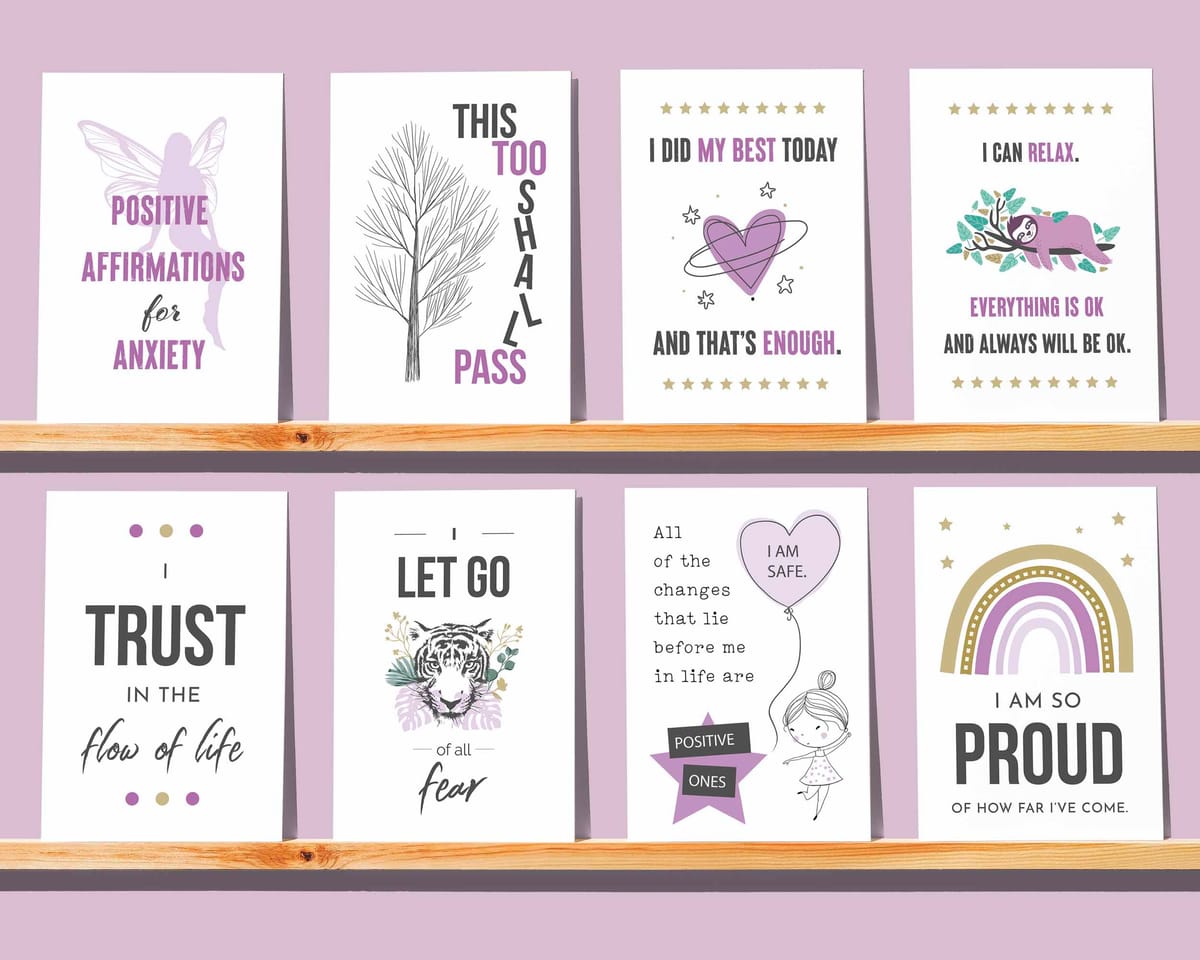It is a Tuesday.
I am sat in 'a charming and inviting coffee shop situated in the heart of Abergavenny.' - Bean and Bread.
I am slowly sipping coffee and watching the rain, whilst researching an article I intend to write, all about anxiety.
I think I am well qualified to write about anxiety - I have had lots of it over the years!
Separation anxiety
I still remember my first day of school. I clung on to my mum & cried and screamed because I didn't want her to leave me!
There was a 'grown up for her age' girl in the class called Katie, who was assigned to look after me because I was crying so much. She eventually cheered me up by telling me that her dog was also called Lisa.
I don't know why, but knowing that I shared my name with a dog, consoled me enough to stop my crying!
Answering the register
Another anxiety I had when I started school was answering the register. When my name was called, I couldn't bring myself to say out loud, 'Yes, Miss!' So instead I would sit there in silence.
There were other things I struggled with at primary school.
I wouldn't talk to most of my teachers. I wouldn't read out loud - even on a one to one basis. Eventually Katie, the grown up for her age 5 year old, was assigned to be my reading partner - because somehow I was able to speak when it was just Katie.
My teachers and my family were perplexed.
"But she's always so loud and chatty at home," my mum would say to my teachers.
"We can't stop her from talking at home!"
Being Mary
Not speaking did have some benefits. I remember landing one of the lead roles in the school nativity play. I was Mary because, in our version of the nativity at least, Mary didn't have to say anything!
Googling it
As I think back over my childhood anxieties I find myself wondering whether anyone else has had the same problems as me. I start typing stuff into Google to see what comes up...
"Won't say yes miss register," is the first search term I try.
Nothing of interest comes up.
Next I try, "won't answer register at school."
Again nothing.
So maybe it is just me. Maybe I really am the only person in the world who had the unusual problem of being unable to answer the register at school.
Next I try, "child won't speak in school."
This time lots of stuff comes up!
Selective mutism
There are tonnes of articles coming up about something called 'selective mutism' and everything I am now reading is describing exactly how I was as a child.
The Child Mind Institute says, "It is common for kids with SM to be very chatty at home with family but silent at school."
That was exactly me when I was at school!
Not alone
It is on the SMiRA website where I stumble across some words which really move me. It says, "Children with selective mutism are likely to find it incredibly difficult to answer the register."
I have to keep biting my tongue really hard as I read this. I can feel the tears welling up in my eyes and I don't want to randomly start crying in a coffee shop! These words not only take me back to the challenges of my childhood. It also makes me realise that I am not alone.
I felt so alone and different as a child.
I felt like there was something wrong with me. That I was somehow less capable and less intelligent than other people.
But as it turns out, there are other people out there who see, feel and experience the world in a very similar way to me.
Turning over a new leaf
I went through the whole of primary school without answering to the register. It was when I moved up to middle school at 9 years old, that I bravely decided to 'turn over a new leaf' and start answering the register.
On that first morning, I sat nervously at my desk, my heart pounding, whilst all of the names were called out - with a surname beginning with 'w', my name was almost the last to be called, so there was plenty of time for the tension to build within me!
Finally, it was my time.
"Lisa Warren."
"Yes, Miss Merrifield!!!"
Hand gestures
I am also reading that children with selective mutism may often try to communicate in other ways when they feel unable to speak, such as nodding or shaking their head, or pointing at things.
This was me too!
When I was older and at secondary school, I can remember two separate teachers asking me if I used to be deaf as a child - because apparently I was using a lot of hand gestures whilst speaking.
As an adult, I know I still use my hands a lot to back up what I'm saying and help me to feel seen and understood. For example, when ordering coffee I am usually asked, "Is that to have in, or take away?"
I will reply, "To have in, please!" - but not without also pointing my finger very emphatically down towards the floor, to clarify that I'm staying in!
A highly sensitive person
Another point which stands out to me, is the number of times I am reading that children with selective mutism are likely to be highly sensitive people.
Apparently a child with selective mutism is likely to:
- Be sensitive to noise, touch or crowds.
- Have a strong awareness of and need for personal space.
- Be sensitive to the thoughts and feelings of others.
- Find it difficult to express their own feelings.
I can easily relate to all of these, even now as an adult.
Sensitivity to noise, touch or crowds
I do love being out and about, soaking up the atmosphere of vibrant and busy places - but I need to balance it out with quiet days where I 'sigh with relief' at being able to stay at home and enjoy complete silence and solitude.
Personal space
One bugbear I have is people standing too close to me in supermarket queues. I often find myself pacing back and forth to try to re-assert my personal space!
Sensitivity to the thoughts and feelings of others
I feel like I can easily read between the lines in conversations, picking up the things which are not spoken. I also find that sometimes I know things about people before they announce them, because I've picked up on those unspoken dynamics.
Difficulty in expressing my own feelings
With this, it's not so much that I have difficulty in expressing my feelings. It's more that I know that that I'm a highly emotional person and I know that if I allow myself to be emotional, I won't be able to control what comes out.
For example, when I was a child, I remember being upset about things, but telling myself, '...if I just don't think about it and don't talk about it, then I can hold myself together and I'll be fine.' At the time, this thinking helped me to feel in control of myself. In retrospect, I can see how unhealthy this thinking was...
Selective mutism as an adult
Whilst I have now overcome many of the struggles I had as a child - and I do talk now - there are still lingering challenges I have as an adult.
Physical overwhelm
I find that, particularly when talking about personal things, or things close to my heart, my body quickly and easily becomes physically overwhelmed - I can feel myself becoming shaky, hot, tense, tearful even.
This causes me to panic because I'm aware that whoever I'm talking to can see these physical things. So it causes a spiralling reaction of further losing control and composure. And as I mentioned above, the way I learned to cope with this as a child, was to 'keep everything bottled up,' to give myself the feeling of being in control.
First names
Trying to address someone directly by their first name is incredibly difficult for me. I really appreciate it when someone addresses me by my first name because it makes me feel 'seen.' I want to return that feeling but something stops me from being able to do the same back.
Leaving social events
There have been many occasions where I have ended up staying at social events longer than I wanted to because I felt unable to interrupt the group conversations to announce that I am leaving!
Scripting official phone calls
This one is no longer an issue for me. When I first left home and went to university though, I used to get so nervous about having to make official phone calls - for example to a utility company or a bank.
I would spend ages 'scripting' the conversation, writing down what I would say and writing down the answers to any questions I might be asked. Even the simple questions like, 'what is my name,' which I most definitely knew the answer to, would have the answer very clearly written down, just in case!
Making small talk
This is one I still really struggle with and wish that I didn't. I often go to coffee shops to work. The conversation with the person serving typically goes like this:
Me: Hello!
Coffee shop person: Hello! How are you?
Me: I'm good thanks!
At this point, I really want to open up and continue the conversation by saying, 'How are you?'
But often something stops me.
Instead, I feel my body contracting, becoming closed and defensive. Sometimes I notice that I cross my arms. It's like I need to protect myself, although I'm not sure what I'm protecting myself from. At this point I realise I've pretty much killed the opportunity for small talk, so I move on to simply ordering my drink and taking a seat!
My thoughts
I'm not sure that I can say I still actively have selective mutism as an adult - I no longer feel completely 'frozen' and unable to speak, in the same way that I did as a child.
I do speak.
For me, I feel like selective mutism is the symptom of my underlying personality type - and my personality type is definitely that of a highly sensitive person.
Selective mutism is perhaps the self-protection response to the sometimes overwhelming amount of information coming in to me, from people and my surroundings.
Perhaps it is also the thought that if I can see, feel and experience everything around me with such intensity, then maybe other people can see into me in that same way too? Perhaps I feel too exposed. Perhaps I feel like I need to protect myself from being so fully seen or judged by people I don't know and trust.
A beautiful gift
One thing I am absolutely sure of though, is that being a highly sensitive person is a beautiful gift.
It is a gift to be able to experience life vividly. It is a gift to be able to see, feel and appreciate everything around you with intensity, and it is a gift to feel strong empathy and to easily sense the thoughts, feelings and emotions of other people.
Every gift comes wrapped in challenges, and within every challenge is a hidden gift...
You may also like to read...

You may also like these printable resources...





